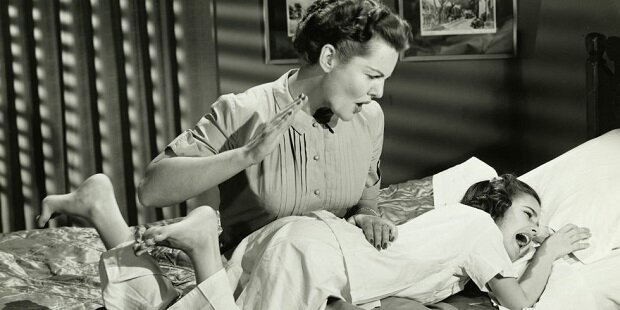Study Proves Spanking Hurts Your Kids’ Mental Health
The negative effects can last (far) longer than you’d think.
Chances are you’ve spanked your child—and even greater that you were spanked as a child—but now more than ever it’s time to retire the age-old discipline. Even though about 70% of parents agree it’s an acceptable punishment, a new study suggests spanking is way, way worse than a smack on the butt.
Researchers from the University of Texas at Austin and the University of Michigan used data on more than 150,000 children over a 50-year period to come up with a fairly damning conclusion: Spanking is linked to aggression, antisocial behavior, mental health problems, cognitive difficulties, low self-esteem, and a whole host of other negative outcomes. As for the upsides, there were absolutely zero —the practice revealed no redeeming effects but consistently strong links to 13 bad ones.
And the scariest part just might be that the vast majority of children are negatively impacted by it. “By the time most kids get to high school, at least 85 percent have been spanked,” the study’s lead author Elizabeth T. Gershoff told CBS News. “To make ourselves feel better about it, we use spanking as a euphemism, but it’s still hitting. There’s no way to define spanking without using the word hitting.”
And for those who counter with “I turned out ok,” Gershoff has an important rebuttal. “We turned out ok in spite of spanking, not because of it,” she told the Chicago Tribune. “When I was a child, there were no seat belts in cars. Do I think I turned out ok because my parents didn’t put me in a seat belt? No. I think I turned out because we didn’t get in an accident.”
So what’s a desperate parent to do? “People think if you don’t spank you’re a pushover, but you can be a firm parent with high expectations for children,” explains Gershoff. “You don’t have to hit them to show you have power.” Instead, set clear boundaries, be consistent, and above all act as a role model. Corporal punishment will only teach the same aggressive behaviors to your kids.
[h/t The Atlantic]
From: Good Housekeeping





